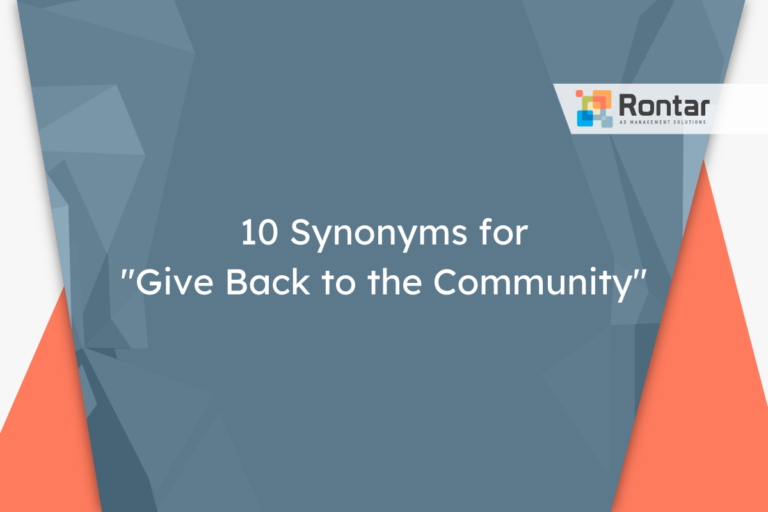10 Synonyms for “Special Thanks”

The phrase “special thanks” is commonly used, but there are many other ways to express your gratitude in a workplace email.
This article lists ten alternatives to “special thanks” that are perfect for different situations and explains when and how to use them. Read on to learn how to give your appreciation extra impact in your next professional message.
Is It Professional to Say “Special Thanks”?
The phrase “special thanks” can be seen as professional, formal or informal depending on the context, and it’s always polite. It’s suitable for acknowledging someone’s significant contribution or effort, whether in written communication like emails and reports or during speeches at events.
It fits well in communications with colleagues, clients, or external partners to whom you want to express gratitude more meaningfully.
Email examplel:
Dear Ms. Smith,
I wanted to reach out personally to express my special thanks for your invaluable assistance with the project launch. Your expertise and dedication were key to our success.
Warm regards,
Alex Taylor
Considering the use of “special thanks,” let’s look at the pros and cons:
Pros:
- Expresses gratitude in a meaningful way.
- Appropriate for a wide range of professional situations.
- Conveys a strong sense of appreciation and respect.
Cons:
- May be seen as overly formal in casual settings.
- Could be misunderstood if the relationship isn’t sufficiently close or formal.
While “special thanks” is heartfelt and impactful, there might be scenarios where synonyms or alternatives could match the communication style or relationship better.
10 Other Ways to Say “Special Thanks”
Finding the right words to express gratitude can enhance your message in a professional email. Here are ten common synonyms for “special thanks” that are perfect for workplace communication:
- With heartfelt appreciation
- Many thanks
- Sincere thanks
- Warm thanks
- Grateful appreciation
- Thanks a million
- With thanks and gratitude
- Greatly appreciated
- With deep gratitude
- Your support is greatly appreciated
1. With heartfelt appreciation
This alternative conveys a deep, more personal sense of gratitude compared to the general “special thanks.” It is professional, yet carries an emotional warmth. It’s suitable when you want to express genuine, deep gratitude for assistance, making it perfect for recipients with whom you have a close working relationship or for those who have gone above and beyond in their efforts.
For sending emails, particularly to a colleague or a team who has significantly contributed to a project, “with heartfelt appreciation” is a very polite and thoughtful choice.
Email example:
Dear Team,
With heartfelt appreciation, I would like to thank you all for your hard work on this project.
Best regards,
Michael
2. Many thanks
This synonym is slightly less formal yet entirely professional and polite. It fits well into any professional email where you wish to quickly and efficiently express gratitude. It’s less personalized but still conveys a strong sense of thanks.
Best used in emails for general acknowledgments, such as following a meeting, “many thanks” is a versatile choice that works across various professional scenarios and is suitable for any recipient.
Example:
Dear Alex,
Many thanks for your insights during today’s meeting.
Kind regards,
Samantha
3. Sincere thanks
By using “sincere thanks,” you are highlighting the genuineness of your gratitude. This choice is both formal and professional, implying a deeper level of appreciation. It’s great for expressing gratitude in more significant scenarios or contributions.
This phrase is especially fitting when acknowledging the effort of a colleague or partner who has provided substantial support or contributions, making it suitable for more formal emails or messages.
Email sample:
Dear Mark,
I want to express my sincere thanks for your commitment to our project’s success.
Sincerely,
Emily
4. Warm thanks
“Warm thanks” adds a touch of personal feel to the appreciation, making it both informal and polite. It is a bit more casual than “special thanks” but still very much appropriate in a professional context where you wish to convey a friendly tone.
This alternative is better suited for less formal emails or messages, perhaps to a team member or within a less hierarchical organization, where warmth and camaraderie are valued.
Here’s an example:
Hello Team,
Warm thanks for your incredible dedication and hard work.
Cheers,
Olivia
5. Grateful appreciation
Choosing “grateful appreciation” elevates the level of formality and gratitude in the message. It is both formal and professional, adding a sense of significant acknowledgment for contributions or assistance received.
Suitable for professional settings where you want to formally recognize someone’s efforts or contributions, this phrase works well in emails addressing higher management or external partners.
Example:
Dear Professor Johnson,
I extend my grateful appreciation for your guidance on my research.
Warmly,
Thomas
6. Thanks a million
“Thanks a million” implies a high level of gratitude in an informal and polite manner. While it’s very friendly, it’s less commonly used in professional settings and might be best reserved for messages to colleagues you know well and have an informal relationship with.
This is a good alternative for emails or messages within a team or when you’re expressing gratitude for a favor among colleagues you’re on good terms with.
Email example:
Hey Jamie,
Thanks a million for covering for me yesterday.
Best,
Chris
7. With thanks and gratitude
This is a more detailed way of expressing thankfulness, emphasizing the gratitude aspect. It’s both polite and formal, suitable for expressing a high level of appreciation in professional emails, particularly towards individuals who have made a significant impact.
Recommended when you want to clearly acknowledge the value of someone’s contribution or support, perfect for use in correspondence with clients, higher-ups, or team members after completing crucial projects.
Example:
Dear Dr. Rivera,
With thanks and gratitude for your invaluable advice and support.
Respectfully,
Elena
8. Greatly appreciated
This phrase is straightforward, implying deep gratitude. It’s seen as both professional and formal. It focuses solely on the appreciation aspect, making it ideal for succinctly conveying thanks.
This synonym is best suited for acknowledgments at the end of professional emails or letters, providing a concise but powerful way to express gratitude to any colleague or contact.
Here’s an example:
Dear Connor,
Your assistance is greatly appreciated.
Kind regards,
Nora
9. With deep gratitude
Using “with deep gratitude” communicates a profound level of thanks. It’s both professional and formal, particularly inspiring in messages where you wish to convey sincere appreciation for significant support or effort.
This alternative is particularly suited for communications that aim to acknowledge and thank individuals or groups for remarkable contributions or for support during challenging times.
Email sample:
Dear Committee,
With deep gratitude for your dedication and hard work.
Sincerely,
Derek
10. Your support is greatly appreciated
This statement is specific, focusing on the “support” received, making it both professional and formal. It’s excellent for expressing thankfulness for assistance or backing, whether moral or operational.
Particularly well-suited for emails to mentors, advisors, or teams supporting your work, this phrase aptly fits in more formal messages to express a focused acknowledgment of support received.
Email example:
Dear Ms. Harper,
Your support is greatly appreciated during this project.
Best,
George
Final Thoughts
Choosing the right words to say “thank you” in the professional world can strengthen your relationships and show your appreciation in a meaningful way. Each of the alternatives to “special thanks” provided in this article has its own best scenario and can convey your gratitude effectively. Whether you want to be formal, informal, personal, or direct, there’s an option suitable for every situation and recipient.






